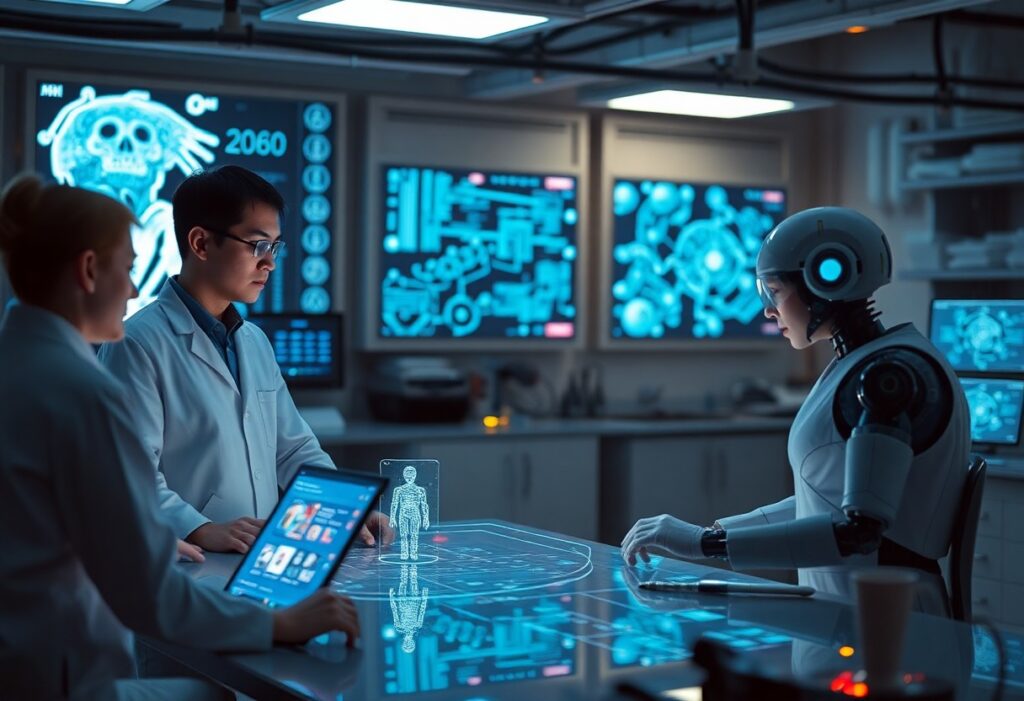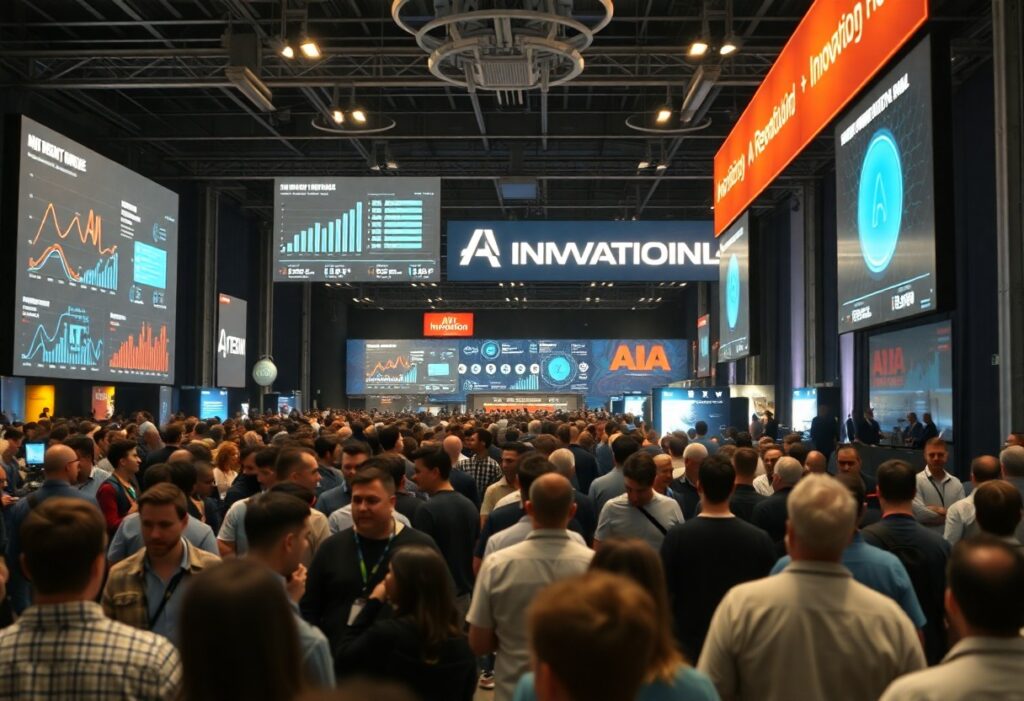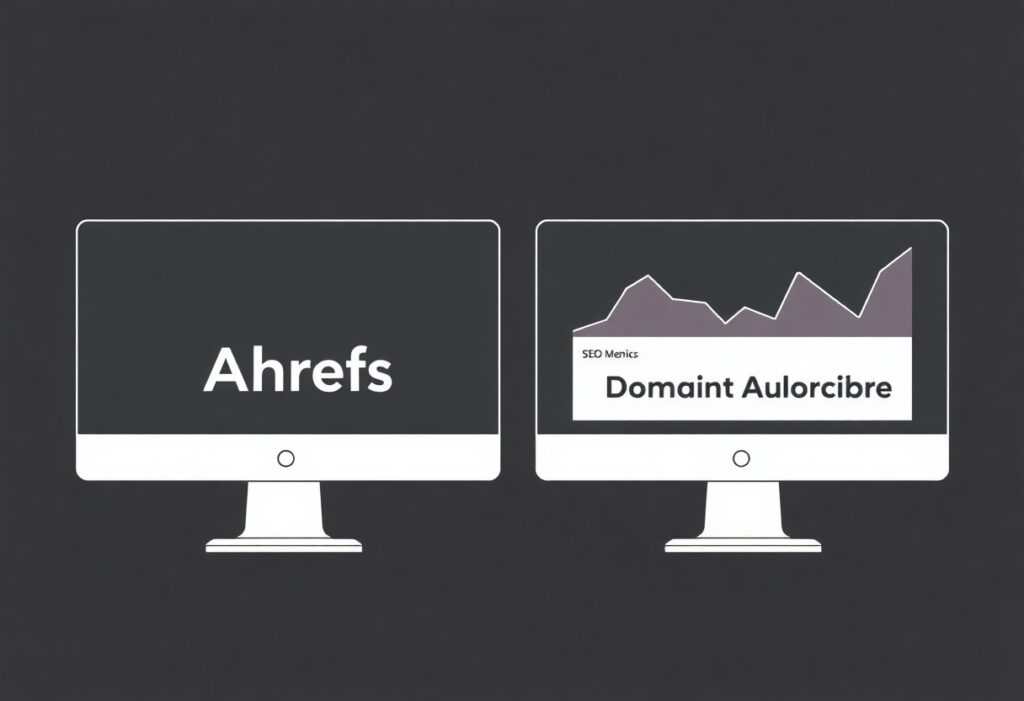The Evolution of AI has transformed your everyday life in ways you may not fully appreciate. Thanks to the rapid advancement of artificial intelligence (AI) life will never be the same again. From its early conceptual days to the current state where it’s deeply integrated into your technology, AI has driven significant changes. You’ll discover how this evolution has brought about not only impressive innovations but also serious challenges that society must navigate. Join us as we explore the journey of AI and how it continues to shape your world.

Key Takeaways:
- AI’s Origins: The journey of artificial intelligence began in the 1950s with theoretical concepts and basic algorithms.
- Technological Advances: Over the decades, innovations like machine learning and neural networks transformed AI from theory into practical applications.
- Data Accessibility: The exponential growth of data availability has significantly fueled AI development in recent years.
- Industry Applications: Today, AI influences various sectors including healthcare, finance, and transportation, improving efficiency and decision-making.
- Ethical Challenges: As AI evolves, ethical considerations become paramount, prompting discussions on privacy, bias, and accountability.
- Future Potential: The future of AI promises even greater advancements, impacting everyday life, work processes, and global issues.
- Collaborative Efforts: Continuous collaboration between researchers, policymakers, and industries is vital for responsible AI development.
Key Takeaways from “The Evolution of AI: From Concept to Reality”
1. AI began as a theoretical concept in computer science.
2. Early AI focused on problem-solving and logic tasks.
3. Machine learning enabled AI to learn from data.
4. Neural networks mimicked human brain functions for AI.
5. AI applications span diverse fields: healthcare, finance, and more.
6. Ethical considerations are critical as AI advances further.
The Historical Context of The Evolution of AI
For centuries, humans have dreamed of creating machines that could replicate human thought and behavior. These early concepts of artificial intelligence laid the groundwork for today’s technology. You might be surprised to learn that ideas about intelligent machines date back to ancient myths and early philosophies, where thinkers pondered the possibility of artificial beings. This foundational vision evolved over time, influencing the way you perceive AI today.
Early Concepts of Artificial Intelligence
Intelligence has long been a topic of fascination, sparking the imagination of philosophers and inventors alike. Early notions of AI often appeared in literature, with creations like the automaton in Greek myths. Fast forward to the 19th century, when Charles Babbage and Ada Lovelace began developing the first mechanical calculators, steering thoughts toward the potential of machines that could think.
The Dartmouth Conference and Birth of The Evolution of AI
At the Dartmouth Conference in 1956, a group of researchers gathered to discuss the possibilities of creating intelligent systems. This event is often marked as the official birth of AI as a field of study, where pioneers like John McCarthy, Marvin Minsky, and Herbert Simon proposed that “every aspect of learning or any other feature of intelligence can in principle be so precisely described that a machine can be made to simulate it.”
A significant outcome of the Dartmouth Conference was the establishment of AI as a formal discipline. You can appreciate that this gathering sparked intense interest and investment in AI research. It set the stage for future advancements, shaping the trajectory of the field we now engage with daily. The optimism fueled by the conference led to bold predictions about the future of AI, driving explorations that would eventually create systems capable of complex problem-solving.
Major Milestones in The Evolution of AI
Before the rise of modern AI, there were key milestones that transformed the landscape of artificial intelligence. Notable achievements include the development of the first AI programs in the 1950s, the introduction of machine learning algorithms in the 1980s, and the remarkable success of deep learning in the 2000s. Each of these advancements helped you to witness AI’s ever-growing capabilities.
Historical milestones of AI development include the rise of foundational algorithms, such as perceptrons and neural networks, which became the backbone of future technologies. Additionally, the introduction of game-playing programs in the 1970s and 1980s demonstrated AI’s potential, leading to breakthroughs that you see today, such as IBM’s Deep Blue defeating chess champion Garry Kasparov in 1997 and the success of AI in areas like natural language processing and computer vision. These advancements not only revolutionized the tech industry but also raised important ethical discussions about machine intelligence’s role in society.

Theoretical Foundations of The Evolution of AI
Assuming you are familiar with the basic concepts of artificial intelligence, it’s necessary to probe into its theoretical foundations. These foundations encompass various areas, including algorithms, computation, machine learning, and neural networks, which have shaped AI into the powerful technology it is today.
Algorithms and Computation
Any discussion about AI begins with the fundamentals of algorithms and computation. Algorithms are sets of rules or instructions that computers follow to solve problems, while computation refers to the processing of data through these algorithms. The efficiency and effectiveness of these algorithms dictate how well AI systems can perform tasks.
Machine Learning: The Game Changer
Theoretical advancements in AI reached a pivotal moment with the rise of machine learning. This approach enables systems to learn from data rather than relying solely on pre-defined rules. With the ability to adapt and improve over time, machine learning brings unprecedented flexibility to AI applications.
Changer technologies like machine learning allow for the analysis of vast datasets. By identifying patterns and trends, you can derive insights that were previously unattainable. This adaptability means that AI systems can continuously evolve, enhancing their performance and accuracy. As a result, machine learning has become the backbone of today’s AI innovations.
Neural Networks and Deep Learning
Foundations of AI further extend into neural networks and deep learning, which mimic human brain processes to analyze complex data. These interconnected networks enable machines to understand and categorize information, making them necessary for a variety of applications, such as natural language processing and image recognition.
The principles behind neural networks and deep learning have revolutionized the efficiency of AI systems. By utilizing multiple layers of processing, these networks can uncover intricate relationships in data that traditional methods might miss. This advancement not only enhances accuracy but also opens the door to developing innovative solutions across various industries. As you dive deeper into AI, understanding these components becomes invaluable for grasping its full potential.
AI Technologies and Techniques | The Evolution of AI
All of the advancements in AI can be linked to several key technologies and techniques that have transformed AI from a mere concept to a practical reality that you can engage with daily.
Natural Language Processing
Processing human language enables machines to understand, interpret, and respond to text or speech. Natural language processing (NLP) plays a vital role in making your interactions with AI more intuitive. From chatbots to digital assistants, NLP allows for seamless communication between you and machines.
Computer Vision
By utilizing advanced algorithms, computer vision empowers machines to interpret and understand visual data from the world around you. This technology is relied upon in various sectors, from healthcare to autonomous vehicles, ensuring better decision-making and efficiency.
Natural language inputs are transformed into meaningful actions, allowing systems to recognize objects, analyze scenes, and even detect anomalies. With computer vision, you can benefit from enhanced security measures, improved medical diagnoses, and smarter user experiences. This technology continues to evolve, reshaping industries as it integrates deeper into your daily life.
Robotics and Automation
After years of development, robotics and automation are now seamlessly integrated into countless tasks and processes. These technologies aid in minimizing human effort, increase efficiency, and enhance productivity in various fields, making them invaluable resources in your workplaces and homes.
Language and coding skills are crucial for operating and programming these robotic systems. You can see the impact in manufacturing, logistics, and even service industries, where automation lessens manual labor and increases production. With advancements in AI, expect even more sophisticated robots that will learn from your preferences and further enhance your productivity.
Applications of AI Across Industries | The Evolution of AI
Keep in mind that AI has transcended its humble beginnings to become a vital component across multiple industries. In this chapter, we explore how AI is applied in various sectors including healthcare, finance, transportation, and consumer technology, each showcasing unique capabilities and impacts.
AI in Healthcare
After years of research and development, AI is now revolutionizing healthcare. From predictive analytics for patient outcomes to automating administrative tasks, AI enhances your ability to deliver better care. These advancements ensure quicker diagnosis and personalized treatment plans that significantly improve patient experiences.
AI in Finance and Banking
Along with the dramatic rise of digital finance, AI plays a pivotal role in risk management, fraud detection, and customer service enhancement. You can expect faster transactions and advanced analytics that empower financial institutions to offer tailored products to their clients.
Healthcare organizations utilize AI systems to assess financial risks, ideally minimizing potential losses. By automating tedious processes and improving data accuracy, AI enables you to make informed decisions. This evolution not only boosts efficiency but also enhances compliance and security measures in an ever-changing financial landscape.
AI in Transportation and Autonomous Vehicles
Any advancements in AI technology have significantly influenced the transportation industry, particularly in the development of autonomous vehicles. With AI’s ability to process real-time data, your commute can be safer and more efficient as vehicles become increasingly intelligent.
And with AI, transportation logistics become streamlined. AI systems analyze traffic patterns, predict delays, and optimize routes, ultimately saving you time and fuel costs. As autonomous vehicles continue to evolve, they may enhance road safety and reduce human error, offering a promising outlook for future travel.
AI in Consumer Technology
After integrating into consumer technology, AI has transformed the way you interact with devices. From smart assistants to personalized recommendations, AI enhances user experiences and makes daily tasks more manageable.
Another area where AI shines is in understanding consumer preferences. By analyzing vast amounts of data, AI can offer tailored content, ensuring your needs are met with precision. This not only improves satisfaction but also drives sales for businesses, making AI an invaluable asset in today’s marketplace.
Ethical Considerations and Challenges | The Evolution of AI
Despite the rapid advancements in artificial intelligence, you must grapple with various ethical considerations and challenges. The integration of AI in society not only alters how we interact with technology but also necessitates a thorough examination of its implications on individual rights, privacy, and societal norms. For a comprehensive look at how AI has evolved and what it means for the future, check out this insightful article on The Evolution of AI From Concept to Reality.
Bias in AI Systems
One significant ethical challenge you face is the bias present in AI systems. These biases can arise from the data used to train AI models, leading to outcomes that unfairly disadvantage certain groups. Your responsibility is to ensure fairness and equality in AI application to prevent harm and promote justice.
Privacy and Data Security
Ethical concerns regarding privacy and data security are paramount as AI systems rely on vast amounts of personal data. Each interaction with AI can potentially expose sensitive information, making robust data protection measures crucial. Your awareness and vigilance in protecting privacy are key in navigating this landscape.
In addition, the use of AI often involves collecting, processing, and storing personal data at an unprecedented scale, which raises significant ethical questions. You need to advocate for strong regulatory frameworks to ensure that individual privacy rights are respected. Balancing innovation with ethical data handling practices is crucial for building trust in AI technologies.
The Evolution of AI: Human-AI Collaboration
Privacy concerns are also extending into human-AI collaboration. As AI systems increasingly assist in various tasks, the dynamics of work will shift, requiring new ethical guidelines. You will need to consider how AI can complement human capabilities while ensuring job security and fair labor practices.
A positive aspect of this collaboration is that AI can handle routine tasks, allowing you to focus on more complex and creative work. However, you must be cautious about the potential for job displacement and advocate for reskilling initiatives to equip your workforce for the AI-augmented future. Being proactive in these discussions can ensure a balanced relationship between humans and technology.

The Future of AI
Once again, as we stand on the precipice of a new technological era, the future of artificial intelligence presents both groundbreaking opportunities and challenges. You must recognize that AI is not just a fleeting trend; it is transforming industries and reshaping how we interact with the world.
Emerging Trends in AI Research
Around the globe, researchers are focusing on understanding human-like intelligence and enhancing machine learning capabilities. Areas such as explainable AI and quantum computing are gaining traction, helping to make AI systems more transparent and efficient. These trends suggest a deeper integration of AI into everyday applications, enhancing their functionality and user experience.
Integrating AI with Other Technologies
Any new technology must evolve, and integration is key. By combining AI with IoT, blockchain, and 5G, you can create intelligent systems capable of real-time data processing and robust security. This synergy not only amplifies performance but also creates new avenues for innovation that were previously unimaginable.
Another point to consider is the profound potential you tap into when integrating AI with other technologies. For example, using AI within smart home devices enhances convenience while improving energy efficiency. As you incorporate AI in fields like healthcare, the potential for predictive diagnostics and personalized treatment plans becomes profoundly evident, offering a glimpse of a more efficient future.
Predictions for AI’s Impact on Society
Behind the scenes, several predictions are emerging regarding AI’s footprint on society. While many foresee benefits like streamlined processes and enhanced decision-making, others express concerns over job displacement and privacy issues. Balancing these perspectives is vital for ensuring a future where AI is beneficial for everyone.
With continued advancements, your society will experience shifts that could either bolster economic growth or lead to significant disruptions. You must consider how ethical frameworks and regulations will play a role in guiding AI’s development. This careful approach can help mitigate dangers while harnessing the positive impacts that AI may bring to education, healthcare, and various other sectors.
Conclusion
Considering all points, you can see how AI has transformed from a mere concept into a powerhouse affecting various industries. This journey not only highlights the technological advancements but also invites you to ponder the implications on your life and work. As you explore further, feel free to examine into The Artificial Intelligence Revolution: Part 1 for more insights on this fascinating evolution. Embracing AI could lead you to new opportunities and innovative solutions in your personal and professional endeavors.
FAQ: The Evolution of AI: From Concept to Reality
Q: What is the primary focus of “The Evolution of AI: From Concept to Reality”?
A: The primary focus of this topic is to explore the journey of artificial intelligence from its early theoretical concepts to practical applications in modern society. It covers key developments, breakthroughs, and the impact of AI on various industries.
Q: How did the concept of AI originate?
A: The concept of AI originated in the mid-20th century. Researchers like Alan Turing and John McCarthy laid the groundwork for machines that could simulate human intelligence. Turing’s famous test provided criteria for determining machine intelligence, igniting interest in the field.
Q: What are some significant milestones in AI development?
A: Key milestones in the evolution of AI include:
- The introduction of machine learning algorithms in the 1980s
- The creation of expert systems in the 1970s
- Advancements in neural networks during the 2000s
- The rise of deep learning and big data analytics in the 2010s
Q: What industries are most affected by AI today?
A: AI is transforming several industries including:
- Healthcare – for diagnosis and treatment recommendations
- Finance – for fraud detection and automated trading
- Retail – for personalized shopping experiences and inventory management
- Transportation – for autonomous vehicles and traffic management
Q: What ethical concerns surround AI as it evolves?
A: With the growth of AI, several ethical concerns have emerged, such as:
- Privacy issues related to data collection and surveillance
- Bias in AI algorithms impacting fairness
- Job displacement due to automation
- The potential for misuse of AI technologies in warfare or manipulation
Q: How can individuals prepare for an AI-driven future?
A: Individuals can prepare for an AI-driven future by:
- Learning new skills related to technology and data analysis
- Staying informed about AI trends and developments
- Embracing lifelong learning to adapt to changing job requirements
Q: What is the future of AI, according to recent insights?
A: The future of AI is expected to be characterized by increased collaboration between humans and machines. Innovations in AI are likely to enhance productivity, creativity, and decision-making. Additionally, ethical frameworks will need to evolve alongside technology to address emerging concerns.

Sign Up for Free!
One-Click Fully Automated SEO.
Boost Rankings, and Increase Traffic.
Instantly Optimize Your Site.
- No Coding
- No Credit Card Required
- One Click Setup













